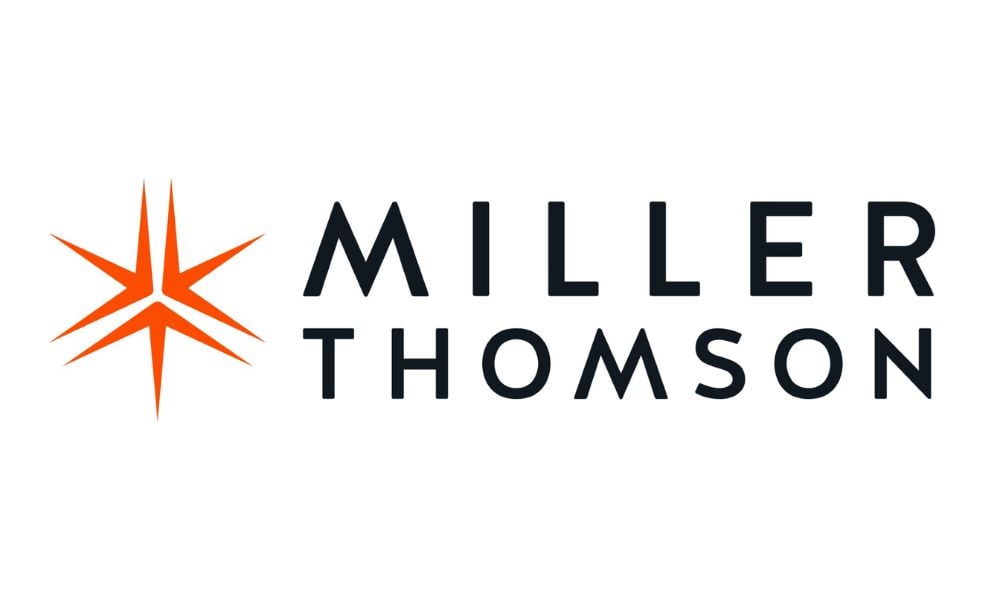Artificial Intelligence (AI) is revolutionizing industries worldwide, and the legal sector is no exception. As AI technology matures, law firms can leverage its efficiency-enhancing capabilities to boost productivity, stay competitive and improve client service. However, AI adoption also presents risk management challenges, particularly with respect to data privacy and compliance, and requires law firms to navigate ethical considerations with care.
This article addresses the ways in which law firms can responsibly harness the power of AI to streamline operations, maintain a competitive edge, and deliver greater value while safeguarding data and upholding regulatory and ethical standards.
Enhancing efficiency and precision
While AI tools have been on the market for some time, the recent acceleration of AI development has brought with it an influx of tools designed specifically for legal work, making it easier for law firms to automate routine tasks like document review, legal research, and contract analysis. These AI-powered tools can quickly analyze vast amounts of data, identify relevant information, patterns and trends, and even predict outcomes based on their analysis, converting traditionally time-consuming processes into more streamlined workflows.
Enhanced efficiency at this scale truly has the potential to transform the role of the lawyer as we know it. By adopting AI tools, lawyers can focus the majority of their efforts on higher-value work requiring human insight and expertise, ultimately enhancing the quality of legal services they provide. The introduction of such tools could significantly impact junior lawyers in particular, freeing them from routine tasks and allowing greater focus on developing soft skills, business acumen, and tech literacy — essential foundations for becoming trusted advisors earlier in their careers.
Improving client service with AI
By enabling a greater focus on lawyer upskilling and higher-value work, AI emerges as a vital partner in delivering an elevated client experience. From chatbots handling routine inquiries to predictive tools anticipating client needs, AI empowers law firms to provide faster, more tailored services. This proactive approach to client management strengthens relationships, builds trust, and enhances client satisfaction while improving overall efficiency. By automating routine client interactions and delivering quick, accurate responses, AI streamlines client service and saves valuable resources. This means fewer billable hours spent on routine inquiries and greater focus on complex legal work, creating greater value for clients.
Addressing AI-related risks: Privacy and compliance
While AI boasts significant benefits, law firms must also prepare to manage the risks associated with its adoption. Since AI relies heavily on data, safeguarding client information is crucial. Law firms should ensure that all AI tools meet stringent data privacy and security standards to avoid unauthorized access to sensitive information. Compliance with regulations, such as GDPR and the evolving landscape of AI-specific laws, is vital for protecting client trust and mitigating legal risks.
Data privacy is not just about compliance; it is an ethical responsibility. As AI tools process more data, firms must handle this information with the highest standards of care, ensuring that clients’ confidential data is securely stored and managed.
Challenges for training associates in an AI-driven landscape
While AI brings undeniable efficiencies, its adoption also poses challenges for training the next generation of lawyers. Many routine tasks traditionally assigned to junior associates—such as reviewing documents, analyzing cases, and preparing detailed summaries—have served as foundational exercises for developing a deep understanding of legal principles and processes. By automating these tasks, there is a risk that associates might miss out on essential learning opportunities that hone critical thinking, analytical skills, and subject matter expertise. Moreover, as these tasks increasingly involve sensitive client information, firms must ensure that juniors gain hands-on experience while maintaining the highest standards of data privacy and security. Striking this balance is essential to nurturing the growth of future legal professionals while leveraging AI responsibly.
Navigating ethical and regulatory concerns
The integration of AI into legal practice brings with it a range of complex ethical questions, such as the potential for algorithms to introduce bias and influence the outcomes of AI-driven analyses or predictions. As such, it is crucial for law firms to implement oversight mechanisms to identify and mitigate any bias, ensuring that AI-based recommendations remain fair and accurate. Furthermore, ethical considerations around transparency require that law firms disclose the extent to which AI influences their legal work.
Regulatory frameworks around AI are constantly evolving, and law firms must remain vigilant to stay compliant. Integrating AI into legal practice responsibly means adopting a “human-in-the-loop” approach — combining human expertise with AI capabilities to create a balanced and reliable service.
Preparing your law firm for successful AI implementation
To fully realize the potential of AI while managing its risks and limitations, law firms should take several preparatory steps:
- Invest in training and education: It is essential to equip legal teams with a fundamental understanding of how AI systems work and with the skills to navigate those tools effectively. Regular training ensures that teams understand, on an evolving basis, AI tools’ capabilities and limitations, allowing for their effective and responsible use.
- Strengthen data security protocols: Since AI relies on data, robust security measures are non-negotiable. Firms should implement advanced encryption, access controls, and regular audits to maintain data privacy and meet regulatory standards.
- Establish ethical AI policies: Clear guidelines around the ethical use of AI can help firms navigate issues like transparency, fairness, and accountability. Documenting these policies also provides clients with reassurance about the responsible use of AI.
- Embrace a culture of innovation with caution: While innovation is vital to a law firm’s success, it must be pursued responsibly. Firms should foster a culture that values technological advancement alongside ethical considerations and data security.
- Start small and scale thoughtfully: Begin with AI in specific areas, such as document review or client communication, and gradually expand. This phased approach allows firms to address any challenges before broader implementation.
The future of AI in legal practice: Opportunities and responsibilities
AI's presence in the legal industry is poised to expand, offering increasingly powerful tools for case outcome prediction, contract management, and client communication, among others. However, as the technology evolves, the legal profession must continue to navigate regulatory shifts, uphold ethical standards, and safeguard data security. By embracing AI responsibly, with a focus on compliance, transparency, and integrity, law firms can stand out as innovative and future-focused, delivering superior services while preserving client trust and ensuring continued success in the digital age.
***
 David Krebs is a business lawyer with a focus in privacy, cybersecurity, and technology law, and serves as the National Leader of the firm’s Privacy, Data Governance & Cybersecurity practice. He acts as a cyber breach counsel across Canada, leveraging his proficiency in crisis management, privacy law, and technology. David advises clients on managing cybersecurity incidents, data governance, privacy risks, and compliance with data protection laws. He provides strategic counsel on M&A transactions, system design, and breach responses, and negotiates technology agreements such as SaaS, service provider arrangements, and data sharing contracts. David often acts as a trusted advisor for technology-focused businesses, guiding them through complex regulatory landscapes, including anti-bribery laws and cybersecurity threats. His knowledge and experience make him a valuable partner for organizations navigating new business models and regulatory challenges in today’s evolving digital landscape.
David Krebs is a business lawyer with a focus in privacy, cybersecurity, and technology law, and serves as the National Leader of the firm’s Privacy, Data Governance & Cybersecurity practice. He acts as a cyber breach counsel across Canada, leveraging his proficiency in crisis management, privacy law, and technology. David advises clients on managing cybersecurity incidents, data governance, privacy risks, and compliance with data protection laws. He provides strategic counsel on M&A transactions, system design, and breach responses, and negotiates technology agreements such as SaaS, service provider arrangements, and data sharing contracts. David often acts as a trusted advisor for technology-focused businesses, guiding them through complex regulatory landscapes, including anti-bribery laws and cybersecurity threats. His knowledge and experience make him a valuable partner for organizations navigating new business models and regulatory challenges in today’s evolving digital landscape.
David has contributed to numerous industry publications, conferences, and presentations, emphasizing his thought leadership in the fields of data protection, privacy law, and cybersecurity. David’s authoritative stance and extensive legal experience make him a trusted guide for clients navigating complex legal terrain with finesse and insight.
David holds various professional memberships, and has been ranked in several esteemed industry directories year after year, reflecting his deep understanding of his field.
***
 Fadi Amine’s practice focuses on civil and commercial litigation, specializing in class actions defense, shareholder disputes, insurance defense, consumer protection and competition law, franchising, insolvency, and special and extra-ordinary remedies, such as injunctions. He also regularly acts in the context of business or land disputes involving Indigenous rights and interests. He heads the Montréal office and acts for national and international clients defending multi-jurisdictional class actions involving product and pharmaceutical liability claims, and price-fixing, consumer protection and Competition Act violations. He appears before all the Quebec courts and the Supreme Court of Canada, as well as before specialized tribunals and private arbitration panels.
Fadi Amine’s practice focuses on civil and commercial litigation, specializing in class actions defense, shareholder disputes, insurance defense, consumer protection and competition law, franchising, insolvency, and special and extra-ordinary remedies, such as injunctions. He also regularly acts in the context of business or land disputes involving Indigenous rights and interests. He heads the Montréal office and acts for national and international clients defending multi-jurisdictional class actions involving product and pharmaceutical liability claims, and price-fixing, consumer protection and Competition Act violations. He appears before all the Quebec courts and the Supreme Court of Canada, as well as before specialized tribunals and private arbitration panels.
With a solid educational background, Fadi holds an LLB from Université de Montréal and a BA in Political Science from Concordia University. He is a respected author and speaker, contributing to legal publications and speaking on topics ranging from franchising to insurance to changes in Quebec civil procedure, demonstrating his commitment to legal excellence.
Recognized for his work, Fadi Amine has received accolades such as being a Leading Lawyer in the Repeatedly Recommended category for Corporate Commercial Litigation by the Canadian Legal Lexpert Directory, since 2019. He has also been recognized as a Litigation Star for Class Actions, Commercial Litigation and Insolvency, according to Benchmark Litigation Canada, since 2020 and has been recognized by Best Lawyers in the Corporate and Commercial Litigation category, since 2021.
***
 Jessica Rubin heads a national team of Knowledge Management (KM) and Legal Project Management (LPM) lawyers alongside the firm’s Library Services and Special Projects divisions. She collaborates closely with senior leadership, practice groups, and the business development team to steer the firm’s knowledge resources strategically. Her focus lies in enhancing practice efficiency and perfecting client deliverables with precision and relevance through comprehensive research services.
Jessica Rubin heads a national team of Knowledge Management (KM) and Legal Project Management (LPM) lawyers alongside the firm’s Library Services and Special Projects divisions. She collaborates closely with senior leadership, practice groups, and the business development team to steer the firm’s knowledge resources strategically. Her focus lies in enhancing practice efficiency and perfecting client deliverables with precision and relevance through comprehensive research services.
Jessica holds a B.C.L./LL.B. from McGill University, an M.A. from the University of Pennsylvania, and a B.A. (honours) from Queen’s University. She has delivered impactful presentations at prestigious events like the Empower Academy’s Empowered Girls Leadership Camp and authored publications focusing on enhancing value-based service delivery within legal practices. Through her educational background and speaking engagements, Jessica exhibits a dedication to empowering individuals and fostering legal excellence.
Active within various legal organizations, Jessica is associated with esteemed groups such as The Advocates’ Society, the American Bar Association, and the Canadian Bar Association. Her involvement extends to leadership roles, including serving as a Director of Sponsorship for Young Women in Law. Educational accolades include scholarships from the University of Pennsylvania and Queen’s University, reflecting her commitment to academic excellence.





